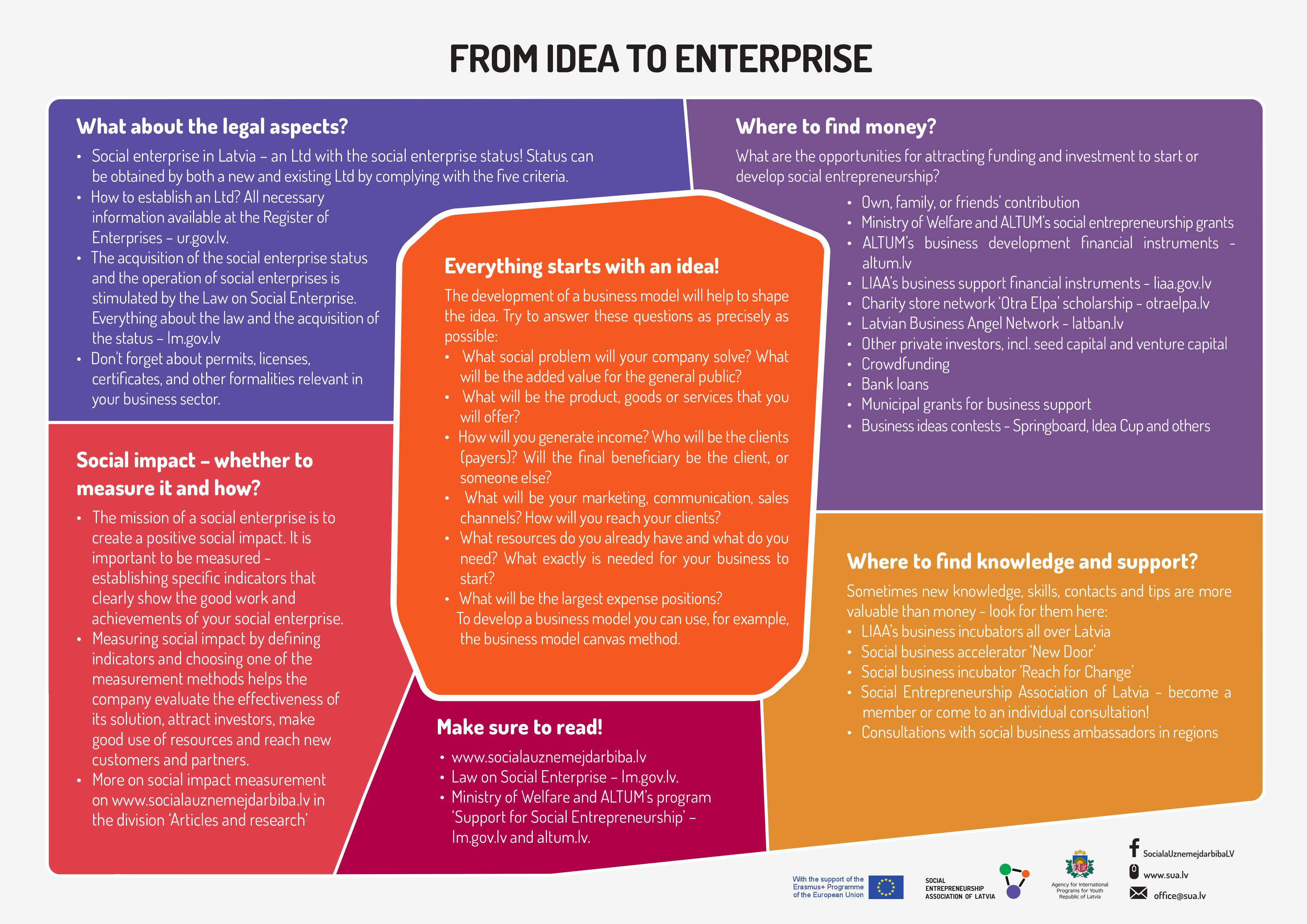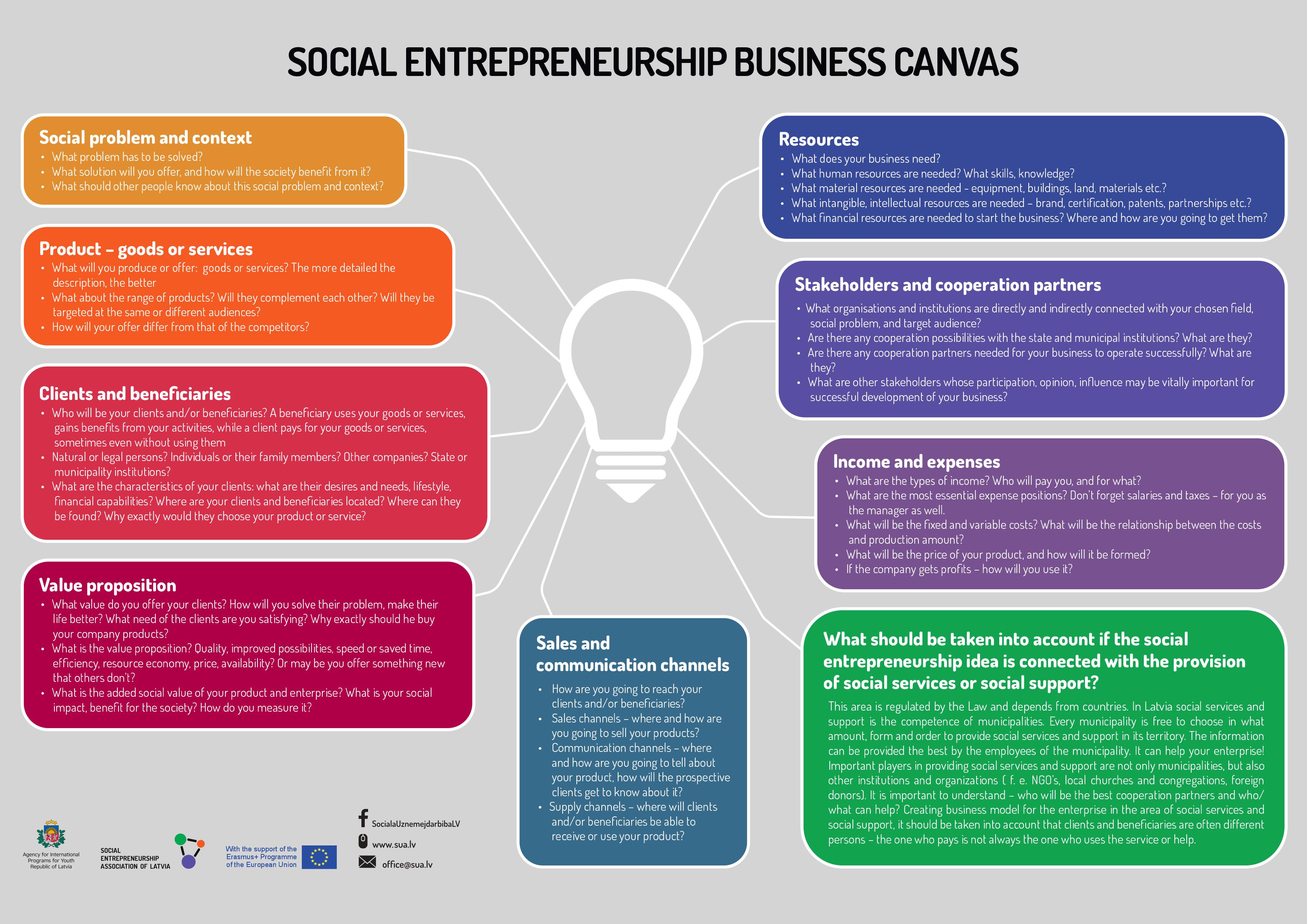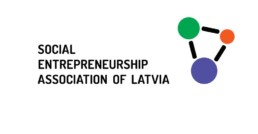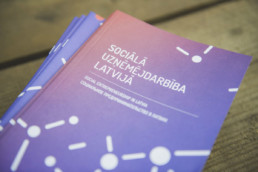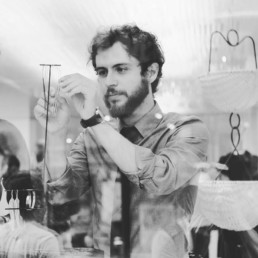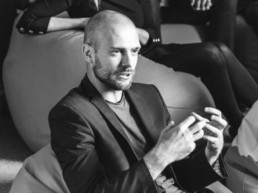Social entrepreneurship: from idea to enterprise
How to start your enterprise? Info material "From idea to enterprise" may help you!
10 questions about social entrepreneurship
Still have question about social entrepreneurship? "10 questions about social entrepreneurship" may help you!
Who we are
NGO "Social Entrepreneurship Association of Latvia" (SEAL) is a member organization to promote the development of social entrepreneurship in Latvia. We bring together like-minded organizations, companies and people who believe that social entrepreneurship in Latvia has huge potential and who are ready to participate in the development and strengthening of the sector.
The SEAL was founded in autumn 2015 and five its founders are the Foundation for Open Society DOTS, the Social Research Center PROVIDUS, the Latvian Samaritan Association, the charity store network ‘Otra Elpa’, social business accelerator ‘New Door’. They are organizations that had done a great deal in the field of research and promotion of social entrepreneurship even before, as well as the ‘pioneers’ of social entrepreneurship in Latvia, who have proved with their work that social entrepreneurship in Latvia is necessary and possible. The SEAL currently has more than 90 members - full list and short descriptions can be viewed HERE.
WHAT WE DO?
The association operates in three main directions:
1. Advocacy of interests at local, regional and national levels. The SEAL participated in the development of the Law on Social Entrepreneurship, our representative is currently in the Commission for the Status of Social Enterprises at the Ministry of Welfare. The SEAL also focuses its attention on social entrepreneurship opportunities at the Latvian level, as well as participates in the development of a social entrepreneurship support program. We also work with other regional and national decision-makers and policy-makers to create a supportive environment for social entrepreneurship in Latvia. Our cooperation network includes municipalities, entrepreneurship support organisations, local, regional and national stakeholders.
2. Improvement of the capacity of members, development of the experience and knowledge-sharing platform. In various ways, we help our members to achieve better their goals by providing joint activities, fast and effective information exchange, up-to-date information on finance and cooperation opportunities, and counseling support. We promote the goods and services of our members in various ways, for example by collecting information about the member’s offer, organizing the Social Entrepreneurship Market in the Kalnciems Quarter, and introducing with useful partners.
3. Informing society about social entrepreneurship. The SEAL takes part in various events to inform the wider community about the opportunities offered by social entrepreneurship. We have created a network of social entrepreneurship ambassadors in the regions of Latvia, we regularly participate in the events organized by our ambassadors. Every year we organize the industry’s largest and most ambitious event - the Social Entrepreneurship Forum. We maintain the largest source of information in the Latvian language about social entrepreneurship - www.socialauznemejdarbiba.lv.
OUR TEAM
The daily work of the association is managed by SEAL team: director Regita Zeiļa, project manager Līva Švarce, project manager assistant Māra Skuja and event coordinator Līga Ivanova.
The Association’s Council consists of five people elected by the members for a term of two years. The Council acts as the strategic advisory body of the Association, defining the main directions of the SEAL, as well as voting for the admission of new members of the SEAL. The Council meets not less than once a quarter.
Composition of the Association’s Council (of date until November 23, 2021)
Andris Bērziņš, Chairman of the Association ‘Latvian Samaritan Association’
Inga Muižniece, Head of social enterprise “SONIDO”
Elīna Novada, Head of social enterprise “Svaigi.lv”
Agnese Frīdenberga, think-tank “Providus” researcher
Miks Celmiņš, Head of “Make Room Europe”
Business details
Association “Latvijas Sociālās uzņēmējdarbības asociācija”
Reg.No. 50008244721
Legal address: Alberta street 13, LV-1010 //
Swedbanka // LV35HABA0551040981984
Achievements
Since the foundation in the autumn of 2015, the Social Entrepreneurship Association of Latvia has become one of the leading organizations in the social entrepreneurship sector in Latvia, not only taking care of improving the capacity, knowledge, and skills of its members in various ways but also developing and promoting the overall social enterprise ecosystem in Latvia.
The most important accomplishments of the Association, which have significantly contributed to the development of the social entrepreneurship sector in Latvia:
- As a result of the three years of work and active involvement of the Association, the Latvian parliament Saeima unanimously adopted the Law on Social Entrepreneurship at the end of 2017, which came into force on 1 April 2018. The law, for the first time in Latvia, defines a social enterprise and the legal framework for its activities.
- The participation of the representative of the Association in the Commission on the Status of the Social Enterprise of the Ministry of Welfare provides a professional and experienced expert opinion during the status award process.
- Active participation in the development of a financial support program for social entrepreneurship of the Ministry of Welfare and ALTUM, ensuring the representation of the interests and needs of social enterprises, as well as a clear explanation of the possibilities and conditions provided by the program.
- Local governments in Latvia are aware of social entrepreneurship and its opportunities; more than 20 municipalities have been involved in activities to promote social entrepreneurship in their territories, together with British Council Latvia we have created a useful toolbox for municipality representatives and tested support mechanisms for social enterprises in 3 municipalities - Ogre, Rēzekne and Līvāni
- Business incubators and the employees of Investment and Development Agency of Latvia are informed and educated about social entrepreneurship, its nature and possibilities, as a result, the business incubators are open to social enterprises and are able to offer them appropriate support.
- Through active work, meetings and communication with other public and private actors, social entrepreneurship has become a topical and stimulating issue for various state and local government institutions (e.g., the State Employment Agency, International Youth Program Agency, etc.), banks, private investors, companies, etc.
- The topic of social entrepreneurship and social enterprise stories have been promoted in the media, including the biggest online press releases of Latvia (Diena, NRA, Latvijas avīze), on television (LTV, LNT, TV3), radio (LR1, LR5, LR6, Star FM), online portals (lsm.lv, DELFI, TVNET) and others.
- The Social Entrepreneurship Forum of the Association has become the most important annual event of the social entrepreneurship sector, bringing together more than 160 participants, lecturers and experts from Latvia and abroad. Resultant to the forum, a new audience was introduced with the topic of social entrepreneurship and valuable long-term relationships established.
- Every year the Social Entrepreneurship Catalogue of Latvia is published, introducing the Latvian and international audience with the success stories of Latvian social entrepreneurs.
- A network of Social Entrepreneurship Ambassadors has been established together with British Council Latvia, with more than 20 active creative community leaders in all regions of Latvia. Through the network of ambassadors, more than 3,600 people across the country have been informed about social entrepreneurship.
- Three international publications on various social entrepreneurship topics have been published, which are available free of charge at www.socialauznemejdarbiba.lv and have been proactively introduced to decision-makers and opinion leaders throughout Latvia.
- Through the ‘one-stop-shop’ consultations, more than 50 people have acquired the necessary knowledge, skills and information to implement their social entrepreneurship ideas.
- More than 100 educational and informative events throughout Latvia have been implemented, providing accessible and comprehensible information on social entrepreneurship opportunities in all regions of Latvia.
- Creation and maintenance of the largest and most comprehensive internet resource in Latvian on social entrepreneurship www.socialauznemejdarbiba.lv.
- Every year the Social Entrepreneurship Market is organized in cooperation with the Kalnciems Quarter - this event not only provides for the visibility of social enterprises but also informs the new audiences about social entrepreneurship.
- Together with the Association members and partners, especially the British Council of Latvia, we create a community to exchange social entrepreneurship knowledge and experience, as a result, new and productive cooperation and opportunities are available for Latvian social enterprises.
Do you want to join our work and engage in creating a social entrepreneurship environment while also using the diverse opportunities and privileges offered by the Association? Become a member! More information here.
About social entrepreneurship
Social entrepreneurship means the production of goods or services in order to solve a social problem or to bring benefits to the public, not the maximization of profits for business owners. Social business types, formats, goods, and services can be very diverse, social enterprises can be large or small, international or local, but they all share the desire to generate high social added value by applying business methods.
Social entrepreneurship is not easy to define - neither in Europe nor in the world there is a single definition or common understanding of the exact boundaries of social entrepreneurship, but the two main criteria still are and remain: 1) entrepreneurship 2) with a social objective.
As social entrepreneurship is an interdisciplinary area full of innovations, it is extremely difficult to put it within a specific frame of reference, therefore, we offer to get acquainted with Latvian and foreign examples in order to understand how this type of entrepreneurship works in practice!
How is social entrepreneurship defined in Latvia?
‘Social entrepreneurship’ and ‘social enterprise’ are slightly different concepts. Social entrepreneurship is a broader concept and mainly characterizes the process, it is not legally defined in any way. A social enterprise already is a specific type of business and a legal status that can be obtained by a company that fulfills certain criteria established by the state.
In Latvia, a social enterprise is a limited liability company (SIA), which produces economic activities that have a beneficial social impact, such as the provision of social services, the creation of inclusive civil society, the promotion of education, the support for science, the protection and preservation of the environment, the protection of animals, or the provision of cultural diversity, and has acquired the status of a social enterprise in compliance with the criteria and conditions established by law.
The status of a social enterprise can be obtained by:
- existing limited liability companies that have adapted their activities to the requirements of the law
- newly established limited liability companies that have been created with a particular objective to immediately become social enterprises.
Who came up with the idea of social entrepreneurship?
The first social enterprises appeared a long time ago (for example, the oldest social enterprises of Britain were founded in the late 19th century), but the first to define social entrepreneurship was Muhammad Yunus, a Bangladeshi social entrepreneur, the founder of the Grameen Bank and the Nobel Peace Prize winner. He formulated the seven principles of social entrepreneurship, which underpin most of the definition of social entrepreneurship currently used in Europe and across the world.
● The business objective is not to gain maximum profits, but to overcome poverty or any other social problem.
● Financial and economic sustainability.
● Investors get back only the amount invested without any dividends.
● After the return of investment, company profits are used for further development and solution of social problems.
● Responsible attitude towards the environment.
● Employees get the remuneration appropriate for the labor market situation and better working conditions.
● ...and do the work with joy!
How is social entrepreneurship explained elsewhere in Europe?
In its documents, the European Commission defines social entrepreneurship as follows:
A social enterprise is an operator in the social economy whose main objective is to have a social impact rather than make a profit for their owners or shareholders. It operates by providing goods and services for the market in an entrepreneurial and innovative fashion and uses its profits primarily to achieve social objectives. It is managed in an open and responsible manner and, in particular, involves employees, consumers and stakeholders affected by its commercial activities.
This definition is not binding in any way for the Member States, and the European Commission emphasizes that there is no uniform legal form for the implementation of social entrepreneurship. However, as the definition shows, the Commission has linked social business with such broader concepts as the social economy and innovation, which indirectly implies a non-traditional and unconventional approach of social entrepreneurship in creating social value.
What is NOT social entrepreneurship?
- Social entrepreneurship is NOT the social corporative responsibility activity of traditional companies. For example, an education program implemented by a bank is not social entrepreneurship, unless, of course, it is implemented in a form of an individual company that is separate and independent both financially and in terms of content.
- Social Entrepreneurship is NOT charity when something is given to someone free of charge. Of course, this can be done if it is based on a sustainable business model that generates income that fully or partially covers charitable activities.
- Social entrepreneurship is NOT social assistance activities provided by state and municipalities.
Read also "10 questions about social entrepreneurship"
Read also "From idea to enterprise"

